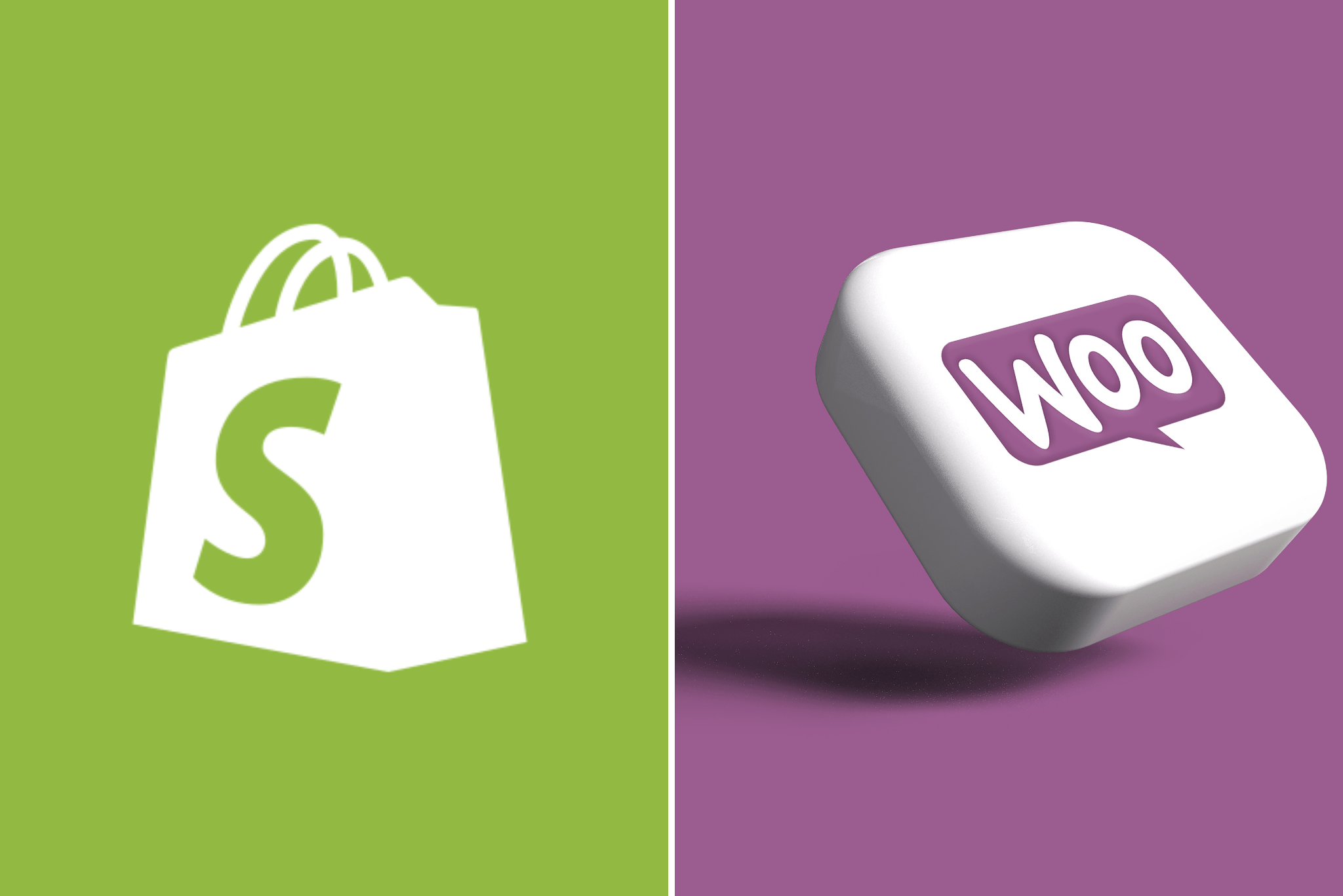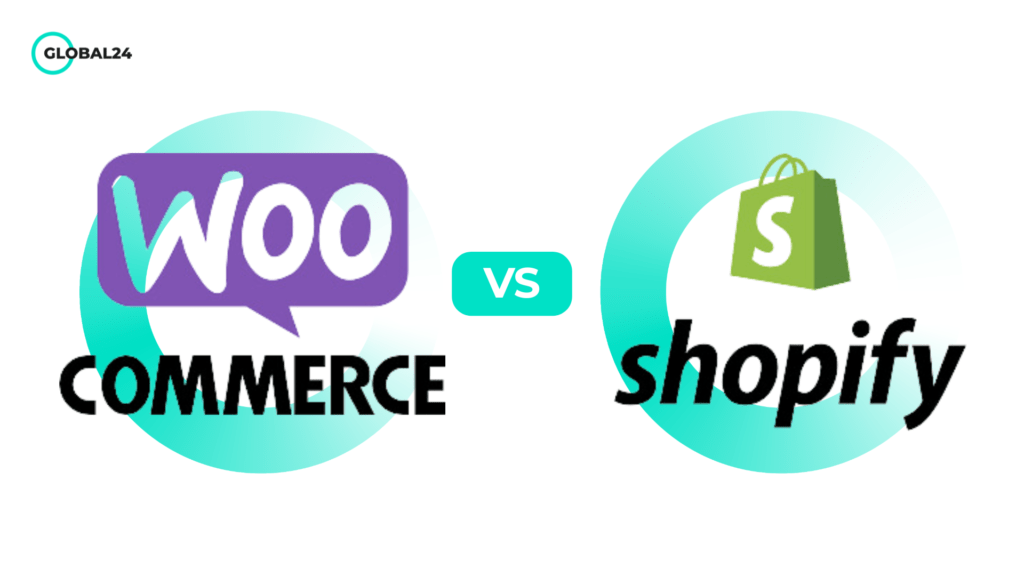Shopify vs. WooCommerce in 2025 – which platform to choose?
Do you want to set up an online shop and are looking for the right platform? Or are you planning to change your existing e-commerce engine but don’t know which one to choose? Some of the most popular solutions on the market are Shopify and WooCommerce.
The question is, which one will be ideal for your business? To answer this question, we will analyse these systems in terms of cost, personalisation, SEO, performance, as well as security.

Publication date:
Highlights of WooCommerce and Shopify
WooCommerce is a WordPress extension running on an open source model. What does this mean? It has an open source code and gives you great flexibility in customising your shop. However, its operation and more advanced configuration requires technical knowledge.
Shopify is Software as a Service (SaaS for short). It is very intuitive, making shop creation a quick and simple process. It provides many possibilities for e-commerce, such as product management, integrations with external applications and extensive analytics.

WooCommerce vs. Shopify: a comparison
1. Costs, i.e. how much you will pay
On the surface, WooCommerce presents itself as a cheaper solution. While the WooCommerce plugin itself is free, in order to launch a shop you need:
- Hosting – this can cost from as little as £20 per month, but if you want your shop to run quickly and smoothly with more bandwidth, prices can run into the hundreds.
- Domain – the cost of a domain is usually one-off, but requires annual renewal (around £50-100).
- SSL certificates – there are free plug-ins, such as Really Simple SSL, but there are also paid options that add around £50-300 to the price.
Shopify, on the other hand, operates on a subscription model.
Costs are included in the subscription, which makes budgeting easier. The cheapest plan – Basic – costs $32 per month (around £126).
Other plans such as Shopify ($92 per month), Advanced ($399 per month), or Shopify Plus ($2,300 per month) are admittedly more expensive, but offer advanced features such as Configurable checkout or third-party-carrier-calculated-shipping.
Conclusion on cost:
- WooCommerce: Initial costs may be negligible – but will almost certainly increase with the purchase of hosting, domain, plugins, etc.
- Shopify: Operates on a monthly or annual subscription basis.
2. Additional expenses, or what else you need to consider
WooCommerce may require a larger investment.
Advanced plugins, better hosting solutions or premium themes will significantly improve the functionality and appearance of your shop, but will generate a greater expense.
Shopify seems simpler in terms of cost, but there is a ‘but’.
Many features that can be implemented for free in WooCommerce are paid for in Shopify. For example, upselling or subscription features can cost between $10 and $40 per month. You can also opt for dedicated Shopify apps, but this is an additional cost.
The final price depends on a number of factors, such as the size of your shop, the features you choose and the level of customisation.
However, what is worth noting is that the price is followed by a lot of facilities. Shopify provides a comprehensive shop management system, integrated apps, 24/7 technical support, or an advanced payment infrastructure.
3. Personalisation, or what opportunities are open to you
WooCommerce = big opportunities.
The platform allows you to build truly personalised features and integrate hundreds of plugins, from advanced marketing tools to ERP, but requires advanced technical knowledge.
Shopify places some limitations on the user, but you certainly don’t need to be afraid of them.
The available solutions make it easy to adapt your shop to your changing business needs and provide great user experience (UX) optimisation.
More than 200 pre-built themes, integrations, an intuitive drag-and-drop editor and Shopify templatedevelopment in Liquid – this and much more is what Shopify offers.
Applications for personalisation:
- WooCommerce: Guarantees extensive customisation, but it is necessary to have the right knowledge to navigate easily.
- Shopify: The possibilities for advanced personalisation here are slightly more limited than with WooCommerce, however, the platform has many integrations and built-in tools.

4. SEO, or what control you have over your positioning
WooCommerce gives you a huge amount of freedom to manage your SEO.
You can modify meta tags, URL structure, create optimised content and implement advanced SEO strategies. The platform is attractive to users who want full control over their site’s SEO – but have the domain knowledge to do so.
Shopify offers basic SEO tools, but the ‘do-it-yourself’ customisation options can prove more challenging than in WooCommerce. However, it’s worth noting that many of the templates available on Shopify are already brilliantly optimised for SEO, plus you have a range of different plugins to streamline the process. Sounds good, doesn’t it?
Conclusion on SEO:
- WooCommerce: A plugin aimed at those with technical expertise who want to harness the power of SEO.
- Shopify: A good choice if you prefer a simpler solution and basic SEO support is enough for you.
5. Efficiency and speed, or how to effectively satisfy customers
The performance of your WooCommerce shop largely depends on your decisions.
For example, if you bet on cheap hosting, the result can be slow page loading times and a negative user experience. Page loading speed is affected by many other factors (e.g. quality and size of graphics, number of products), which you need to consider before choosing.
On the other side of the barricade is Shopify.
It provides a server infrastructure that is constantly monitored and optimised. This means that a Shopify-basedshop will run quickly and smoothly.
Conclusions on performance:
- WooCommerce: your hosting choices (and costs!) will affect the speed of WooCommerce-based sites.
- Shopify: You don’t have to worry about performance as the platform is optimised without your intervention.
6. Security, a guarantee of peace of mind
With WooCommerce, you take care of the security issue yourself.
You have to install the SSL certificate yourself, download plugins, update WordPress and WooCommerce regularly, etc. You can choose advanced security and try to configure it yourself – but the risk of making a mistake is high and costly.
Shopify already has SSL certificates, is PCI DSS compliant (the security standard for the payment industry), offers many tested integrations (e.g. Shopify and Przelewy24 integration), and regularly updates the system. With this platform, your shop is already secured against threats at the outset!
Security conclusion:
- WooCommerce: Requires significant user involvement. As a result, security vulnerabilities are more likely to occur.
- Shopify: Wins in this category. Offers a more comprehensive and automated security solution.

Which solution is more future-proof?
Shopify is an advanced platform that is constantly evolving – improvements, new features, interesting offers for businesses. Even the relatively high price does not deter you when you see such possibilities!
WooCommerce, on the other hand, leads the way with its flexibility. For those who like independence and have the necessary knowledge, but also the time to implement it, it will be a proven solution.
Summary
WooCommerce is ‘freedom’. Shopify is a fast and secure start.
If you need a lot of flexibility, advanced SEO options and have the technical knowledge, WooCommerce will be a good choice – especially as it offers lower upfront costs. But, if you prioritise ease of use, performance, security and a turnkey solution, then Shopify will be a better strategy.
If you’re not sure which platform to choose, get in touch with WeCanFly!
The specialists at WeCanFly will help you decide, compare platforms according to your needs and, if you want, even carry out the migration. And all this with as little interference on your part as possible.
Do you want to be up to date?
Subscribe to the newsletter
Subscribe to the CROSS-BORDER LETTER newsletter! Learn about news, tricks and secrets in foreign logistics. Check how to sell abroad and achieve more benefits.





